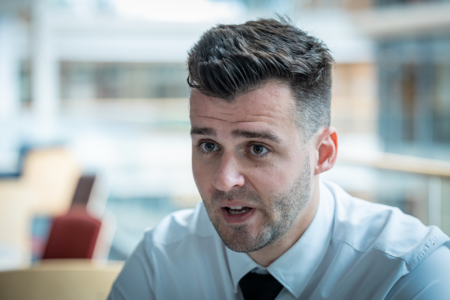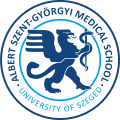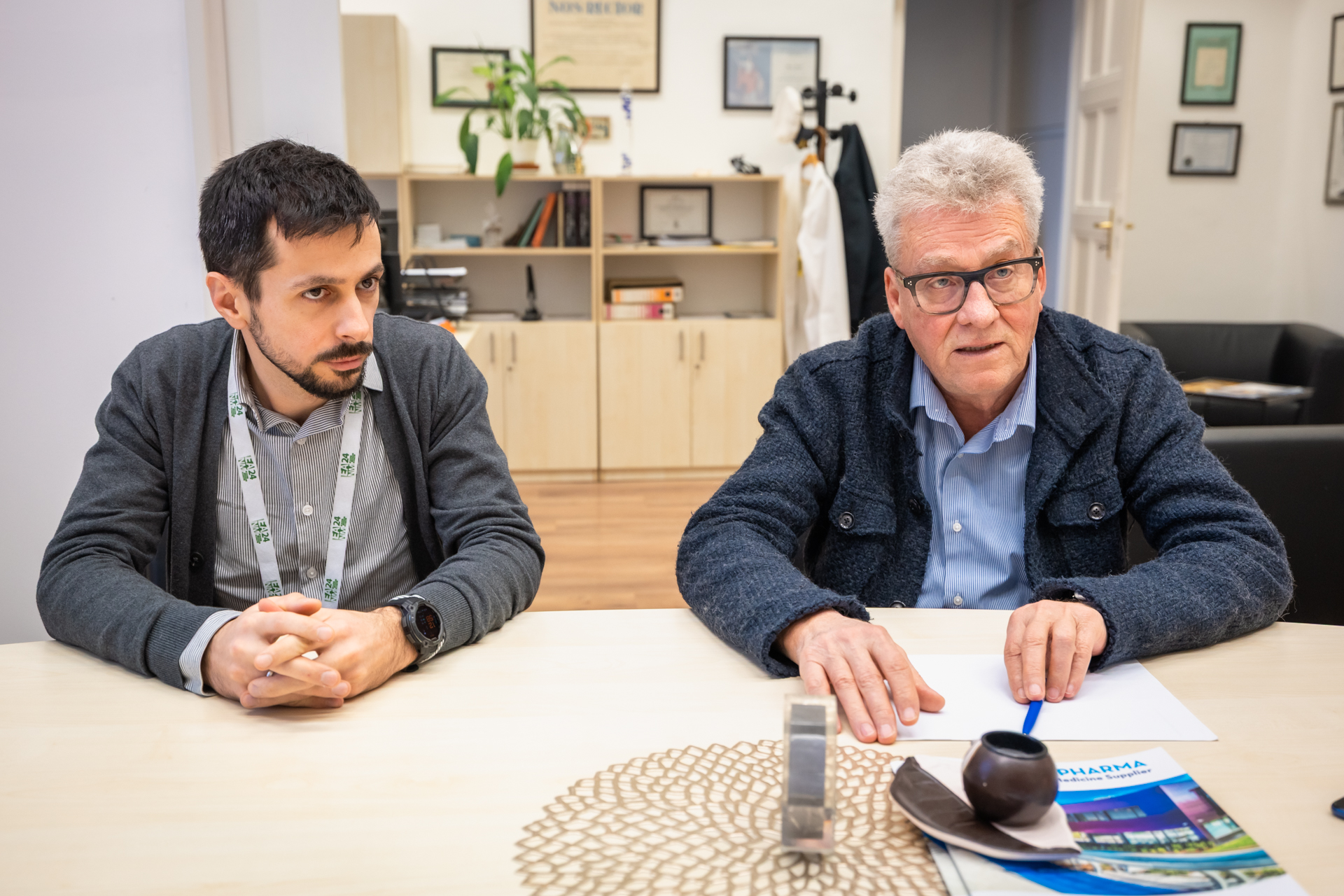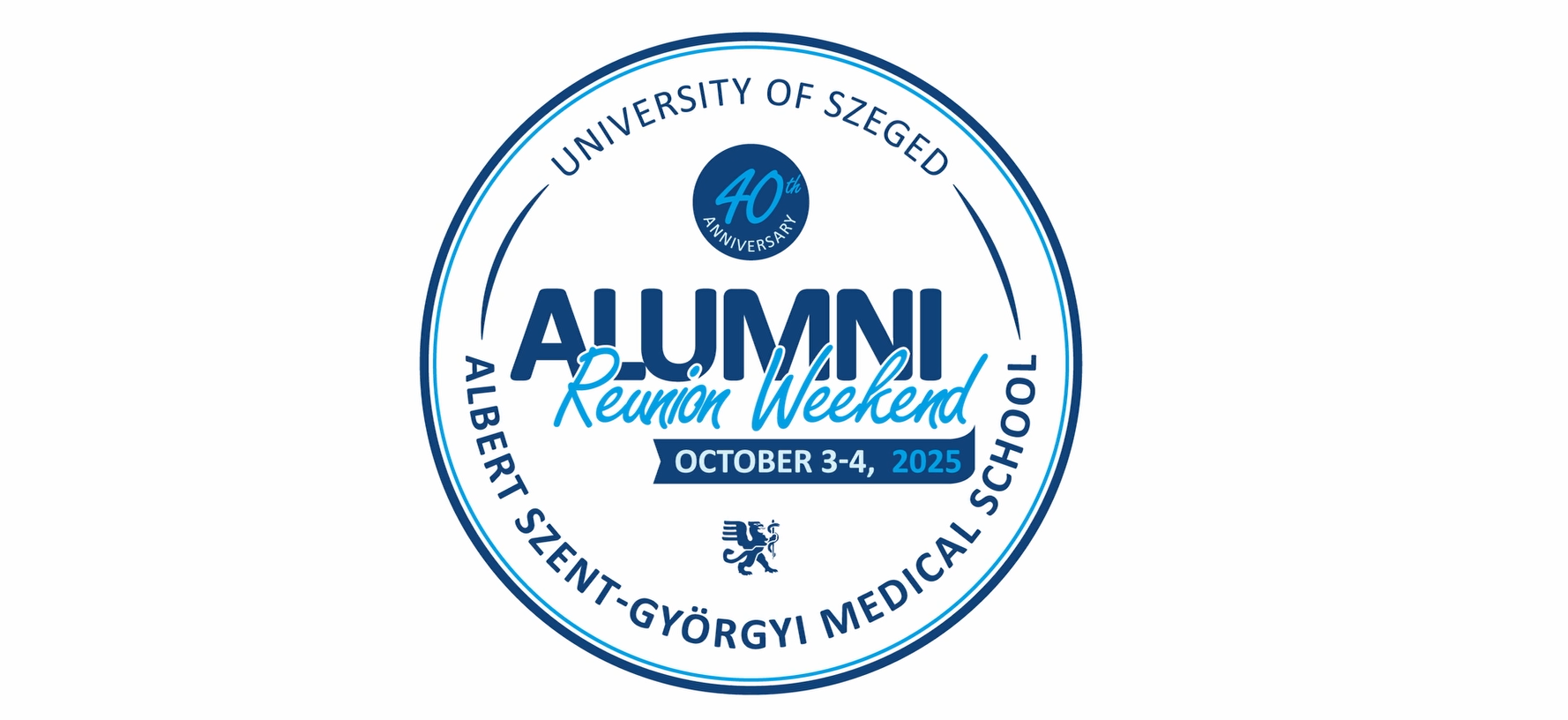2024. July 03.
At the graduation ceremony of the Albert Szent-Györgyi Medical School on 27 June 2024, András Szabó, sixth-year medical student, did not only receive his diploma from Prof. Dr. György Lázár, Dean of the Medical School, but also received a dean's commendation.
In February this year, the young man from Hódmezővásárhely saved the life of a man who suffered an epileptic fit on a flight to Gran Canaria.
‘I was travelling to a conference on cochlear implantation. I had changed planes in Frankfurt and was on my way to Gran Canaria. I fell asleep shortly after take-off and was woken up about twenty minutes later by someone in the row in front of me shouting, ‘Help!’ All I could see was the entire row in front of me shaking, but I didn't know what had happened,’ this is how András recalled the medical emergency on a Discover Airlines flight on February 24 this year. According to the sixth-year medical student of SZTE, there was quite a state of panic aboard.
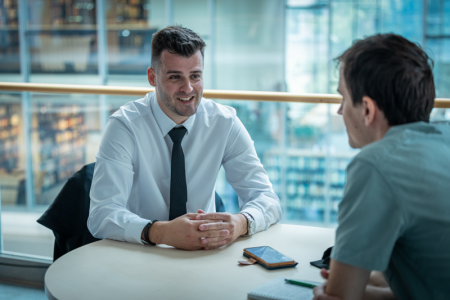
The flight attendants used the PA system to find out if there were any doctors or medical staff on board. ‘I did not hesitate, I asked the passenger next to me to lift the patient and take him to the back of the plane. I examined the patient according to the structured ABCDE assessment protocol I had studied at university. He had an airway obstruction, bit his tongue, and his saturation was inadequate. Fortunately, the flight crew provided me with a medical bag, so I had all the equipment I needed for the examination. I asked the patient’s relative about his medical conditions. In the Aviation Medicine course, we used a checklist to assess the severity of the patient's condition. I asked the flight attendants how much oxygen, what drugs and equipment were available. They phoned the pilot, who said we had to decide whether to land or not, because we would be flying over water for two and a half hours and we couldn't turn back,’ András said. He asked for 2-3 minutes to consider the situation and concluded that they should land, because they might not be able to maintain the patient’s condition for the whole trip. They landed at the Charles de Gaulle airport in Paris and he handed the patient over to the ambulance.
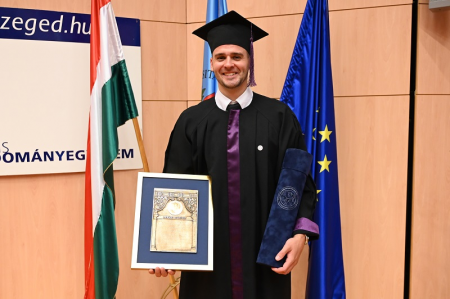
‘How did you feel during this emergency? Have you ever experienced a situation like this?’ - we asked. – ’I remembered what the dean said when I enrolled at the university: we must always help and do our best, whether it's resuscitation or any other emergency. Before being admitted to university, I was working as a life guard at a swimming pool and I had already encountered such an acute situation once. In addition, six months before the flight I had completed the advanced life support (ALS) course of the Hungarian Resuscitation Council, which concentrated on this protocol-based assessment,’ András pointed out.
The young doctor would like to continue his studies in Anaesthesiology and Intensive Care. He has recently learnt that he had been accepted as a resident at the Department of Anaesthesiology and Intensive Therapy in Szeged, where he has been working as a nursing assistant for two years. His study and research achievements are also outstanding; he was awarded first prize at the Scientific Student Conference in 2023 and he also won a special prize at the 31st International Scientific Conference in Tirgu Mures this year. His topic was "A multidisciplinary approach to early cochlear implantation: anaesthetic challenges".
‘I would like to stay at the University of Szeged and make good use my knowledge here at my Alma Mater,’ András said, talking about his future plans.



